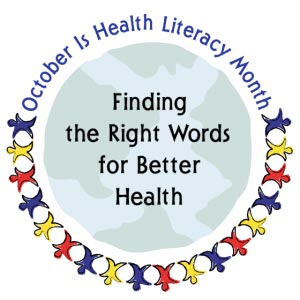When Scott Overholt arrived at UHN in 2015 for a kidney transplant, he had no idea that five years later he would be a go-to person for clear health information during a pandemic. But that is exactly what happened after the retired commercial banker, whose wife served as his donor, decided that he wanted to give back to the hospital.
After treatment for Lymphoma at Princess Margaret Cancer Centre and Toronto General Hospital, Julia Dobbin also saw the need to give back by serving as a bridge between patients, staff and the hospital.
Both Scott and Julia, along with about 130 others in the Patient Partners Program, have over the years played an important role in expanding patient engagement in organizational decision making across UHN. Declaration of the global pandemic in March hasn't stopped their contribution.
"A lot of Patient Partners reached out to us, saying, 'what can I do?'" says Becky Quinlan, Patient Partnerships Coordinator for Patient Education at UHN.
Since March, the Patient Partners have formed a Rapid Response Group, which offers quick turnaround in reviewing important information for patients to ensure it's clear, concise and easy to understand.
October is Health Literacy Month, a time to raise awareness about the importance of patients having the necessary tools and skills to manage their health, or to care for their loved ones.
Health literacy means using many different skills to get, understand, communicate and use information to make informed decisions about your health and navigate the healthcare system.

Reviews typically done in two days, often much faster
The 15-person Rapid Response Group is a good example of health literacy at UHN. The Rapid Response group is a collaborative effort between the Patient Partnerships Program and the Patient Education and Patient Engagement teams.
The Patient Education team sought feedback from Patient Partners to help develop accessible and reliable health information produced by UHN staff.
Authors of the new materials submit it, along with three or four review questions, via the Patient Education team. The request is then sent to the Patient Partnerships team, which sends it out to four or five members of the Rapid Response Group, who typically turnaround the request within two days.
The group has reviewed tools and communications related to virtual care, COVID care, masking and infection prevention and control, a COVID-19 outbreak at Toronto Western, and others.
Becky says the close relationships between her team and the community of Patient Partners helped them understand that their expertise was essential during the pandemic.
"We're all in this together," says Becky, whose team supports Patient Partners by providing a staff contact from them to discuss concerns.
"Our expertise is in knowing who our Patient Partners are, knowing what their interests are, and knowing what might be a good fit for a particular project."
Scott and Julia agree that being able to put themselves in another's shoes is what they try to do when reviewing documents for the Rapid Response Group, or for other needs. For Julia, it's all about keeping it simple and putting herself in the position of a multitude of patients.
"Is it easy to understand?" Julia says. "If you're not getting it, then other people aren't getting it."
'Every decision is from the patient's perspective'
Since the pandemic was declared, UHN has tried to ensure Patient Partners are still key members of the hospital community even if they cannot come in.
For Julia, the transition to virtual meetings has allowed her to sit on four committees, more than she would have been able to commit to in-person. Scott is involved in five groups, including co-chairing the Digital Consulting group that manages patient data.
"The more committees you're on the easier it gets," he says.
Scott, who says the Rapid Response Group work has "educated me on COVID-19 and given me the confidence that UHN is taking this seriously," underscores that approaching the work as a patient would is vitally important.
"That lens can make a huge difference," Scott says. "Every aspect, every decision is from the patient's perspective."
"It's a win-win for everybody."
